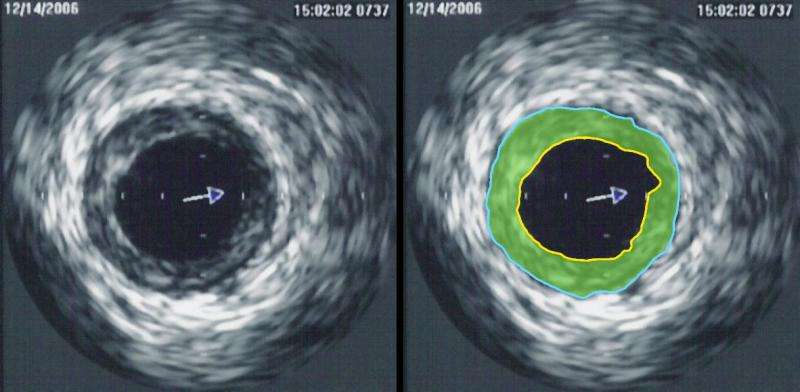Scientists discover gene responsible for the development of myocardial infarction

A team of Lomonosov Moscow State University scientists investigated the genetic mechanisms underlying the development of coronary atherosclerosis. The results are potentially valuable for estimating the risk of the myocardial infarction. An article on the research project was published in the International Journal of Clinical and Experimental Medicine.
Cardiac ischemia is a significant medical and social problem. The disease is currently one of the main causes of death and disability all over the world. Alexander Balatskiy, one of the research project's authors, says that according to the results of the study, mutations in the gene encoding the T-cadherin protein correlate to the development of cardiac ischemia. This discovery will enable better prognosis of the atherosclerosis at earlier stages of development.
The initial manifestation of cardiac ischemia is usually acute coronary syndrome (ACS). Intravascular thrombosis occurs on a damaged atherosclerotic plaque, which leads to myocardial infarction (MI). The average stenosis of the infarct-related artery is about 48 percent (which means, the plaque blocks 48 percent of the vessel diameter). For that reason, patients with small plaques may not suffer from heart pain or other ischemic symptoms, and are thought to be at high risk of acute myocardial infarction. In cases when an atherosclerosis plaque and cardiac ischemia are developing gradually, the stable angina pectoris appears as the first sign of the disease.
"The essence of our study was in researching how the T-cadherin protein influences the development of cardiac ischemia, particularly its initial stage: An unexpected MI or progressive development of angina (heart pain)," says Dr. Alexander Balatskiy. "The data showed that the T-cadherin influenced the development of cardiovascular diseases, though its exact functions remained unclear. We determined that one of the mutations of the the T-cadherin gene correlates with the nature of the cardiac ischemia."
The study population included 187 men aged 26 to 55 years who recently developed the disease CHD.
"We used the genetic test to detect whether the T-cadherin gene mutations, influencing the amount of the protein in cells, are linked to the development of MI or angina," says Balatskiy. "The DNA of the patients with the varying nature of the diseases' initial stage was taken from the MSU Faculty of Medicine biobank. Then we compared the frequencies of mutations in different groups and evaluated its influence on the development of the disease separately and in combination with such well-known risk factors as obesity, smoking, hypertension and high cholesterol."
Scientists detected that the genetically determined changes in the T-cadherin level were associated with the nature of cardiac ischemia onset: MI or the stable angina pectoris. This confirms that the T-cadherin participates in the process of atherosclerosis development and influences the stability of the atherosclerotic lesions. The results may be used for estimating the risk of the MI development and predicting the pattern of the atherosclerosis initial formation.
The authors of the work assume that studying the mutations in the T-cadherin gene would not only help to define its clinical significance, but also contribute to the fundamental research of the protein's functions.

















